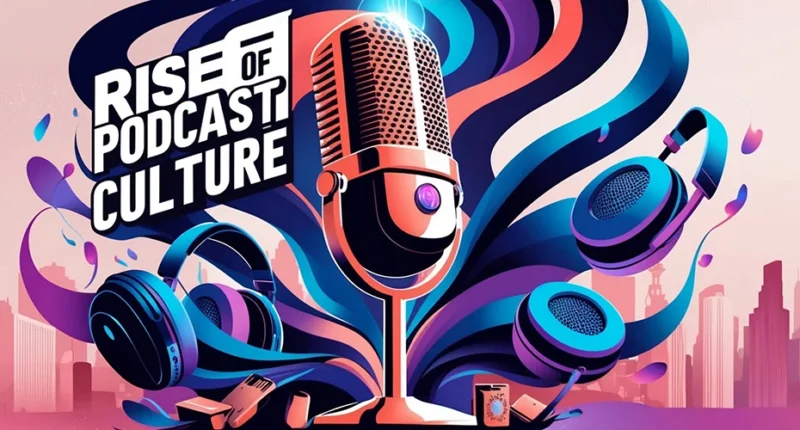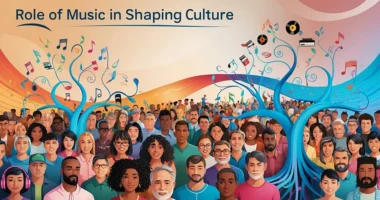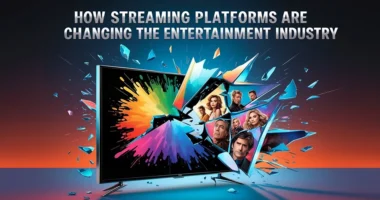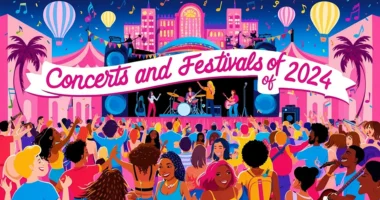Table of Contents
Podcasts have become a massive part of modern entertainment, information sharing, and education. With millions of shows available on a variety of topics, it’s easy to see why podcast culture has risen to such prominence in recent years. Whether you’re into storytelling, true crime, comedy, self-help, or deep-dive discussions on science and history, there’s a podcast for everyone. But what makes podcasts so popular, and how has this form of media evolved? Let’s explore the rise of podcast culture and its impact on society.
The Appeal of Podcasts
One of the main reasons podcasts have taken off is their convenience. Unlike traditional radio shows or television programs, podcasts can be listened to on-demand. You can listen while commuting, working out, cooking, or just relaxing at home. This flexibility means that people can enjoy podcasts at their own pace and on their own schedule, making it easier to incorporate them into everyday life.
Podcasts also offer an intimate listening experience. The voices of hosts and guests often feel personal and relatable, which helps create a strong connection with the audience. It’s like having a conversation with friends, even though you may not know the people speaking. This connection is something that other media forms, like TV or movies, may struggle to replicate in the same way.
A Platform for Diverse Voices
The rise of podcasts has given a voice to many individuals and communities that were once underrepresented in mainstream media. Podcasting allows anyone with a microphone and an idea to share their thoughts and stories. From people sharing personal experiences to experts offering advice or niche topics being explored, podcasts provide a platform for a wide variety of voices.
This has led to more diversity in media, with many podcasts focusing on issues like mental health, race, gender, and social justice. Shows like The Michelle Obama Podcast or Code Switch by NPR highlight the importance of having diverse perspectives in the conversation, helping to shape how we view the world.
A New Era of Storytelling
Podcasts have also brought about a new era of storytelling. While books and TV shows have been the traditional forms of storytelling, podcasts have added a unique spin with audio formats that bring stories to life. True crime podcasts like Serial or narrative-driven shows like Welcome to Night Vale have captivated audiences by blending storytelling techniques with the power of sound design and music.
The intimacy of audio allows for a more immersive experience. Listeners can picture the scenes in their minds as they hear the words, creating a vivid mental image. This form of storytelling has not only entertained listeners but also sparked important discussions and even inspired actions in the real world.
Podcasts as a Learning Tool
Education is another area where podcasts have had a huge impact. Many people are now turning to podcasts as a tool for learning new things, whether it’s improving skills, expanding their knowledge, or staying informed about current events. Educational podcasts like Stuff You Should Know, TED Talks Daily, and The Daily by The New York Times make it easy for people to learn on the go.
Because podcasts can cover any topic imaginable, they’ve become a valuable resource for people looking to explore new subjects or deepen their understanding of a particular field. From business and technology to literature and philosophy, podcasts are transforming the way we access information and learn.
The Growth of Podcasting as a Business
As podcasting has gained popularity, it has also become a booming industry. Companies and entrepreneurs are increasingly seeing podcasts as a way to connect with their audiences, build communities, and even market products. Many podcasts are now monetized through sponsorships, ads, and premium content. Big brands like Spotify, Apple, and Google have entered the podcasting space, offering platforms for creators and listeners alike.
The business of podcasting has also led to the creation of podcast networks, which group multiple shows under one umbrella. These networks can help creators find new audiences and offer better opportunities for monetization. As the industry grows, we’re seeing more resources available for creators to produce high-quality content and build sustainable careers around podcasting.
The Future of Podcasting
Looking ahead, it seems that podcasting will only continue to grow. As technology improves, the quality of podcasts will continue to increase, and more people will find new ways to engage with audio content. With the rise of smart speakers, like Amazon’s Alexa and Google Home, podcasts are becoming even more accessible. You can listen to podcasts just by asking your device, making it easier than ever to tune in.
Additionally, as the world continues to embrace remote work and digital communication, podcasts will likely continue to serve as a means of connection and community. They provide a way for people to stay informed, entertained, and engaged without the need for face-to-face interactions.
Conclusion
Podcast culture has truly transformed the way we consume media, offering something for everyone. Whether you’re looking to be entertained, learn something new, or explore different perspectives, podcasts have something to offer. The convenience, accessibility, and diversity of podcasts have made them an integral part of modern life. As podcasting continues to grow, we can only expect more exciting, creative, and impactful shows to emerge, shaping the future of media and communication.










